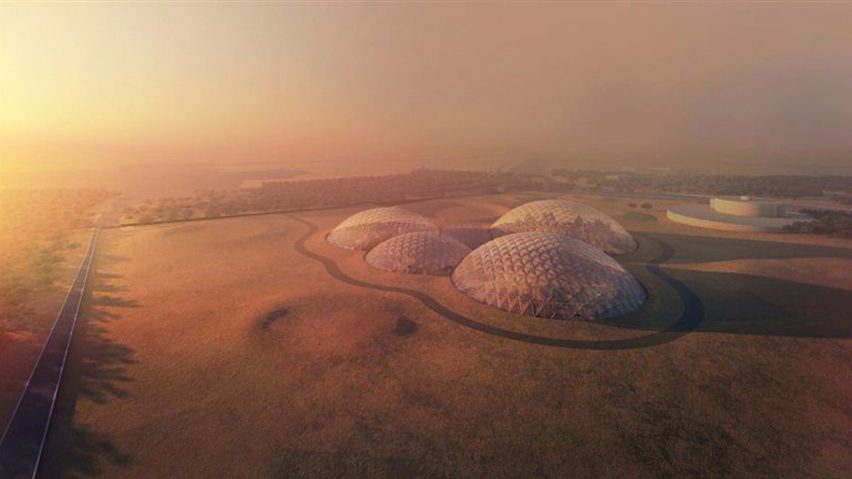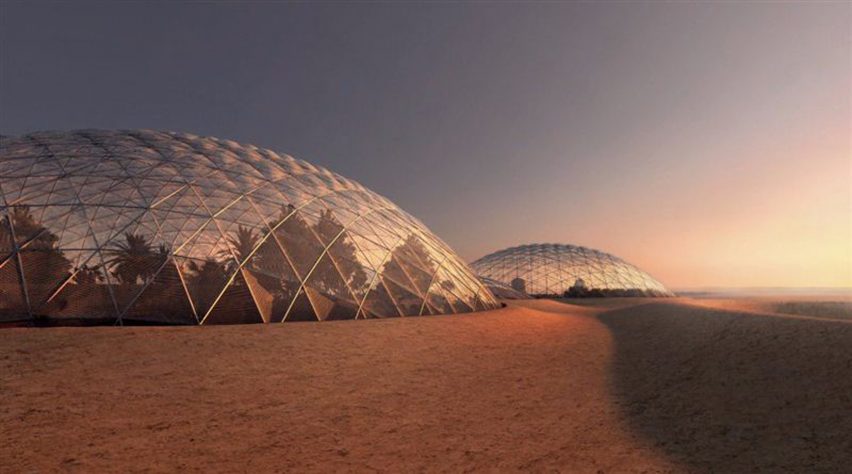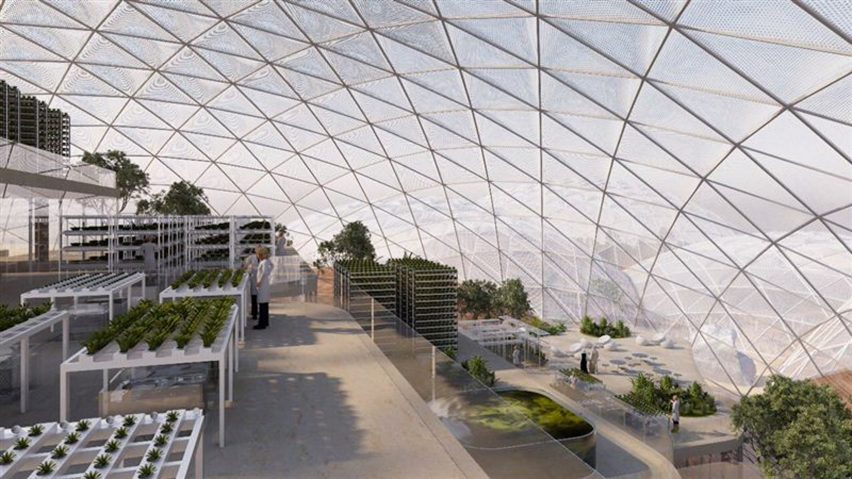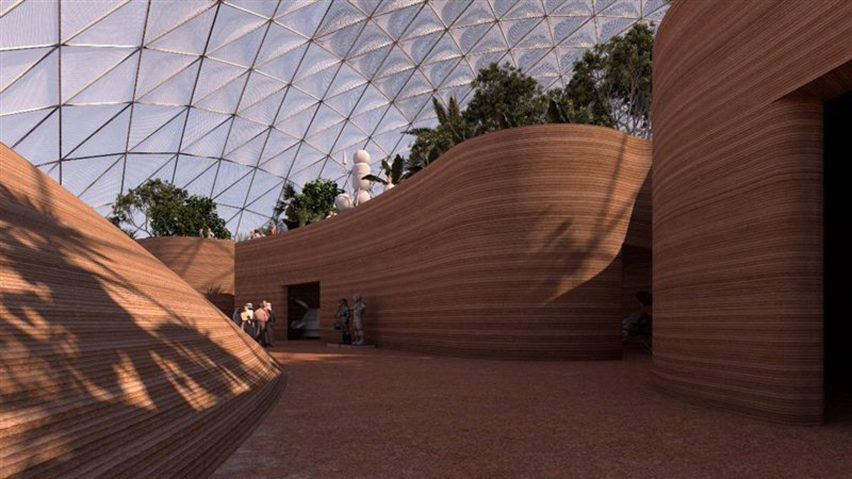
Bjarke Ingels proposes Mars simulation city for Dubai in race for space colonisation
Danish architect Bjarke Ingels has revealed designs for the Mars Science City, which will operate as a space simulation campus near Dubai where scientists will work on "humanity's march into space".

Ingels' plans show four geodesic domes enveloping the Mars Science City, which will cover 17.5 hectares of desert outside Dubai – making it the largest space simulation city ever built.
A team will live inside the experimental city for a year, which will recreate the conditions of the Red Planet. Scientists will work in laboratories dedicated to investigating self-sufficiency in energy, food and water for life on Mars.
Ingels, the founder of Danish firm BIG, will work on the AED 500 million (£101 million) project with a team of Emirati scientists, engineers and designers led by the Mohammed bin Rashid Space Centre and the Dubai Municipality.
"The UAE seeks to establish international efforts to develop technologies that benefit humankind, and that establish the foundation of a better future for more generations to come," said Sheikh Mohammed bin Rashid, vice president and prime minister of the UAE, and ruler of Dubai.
"We also want to consolidate the passion for leadership in science in the UAE, contributing to improving life on earth and to developing innovative solutions to many of our global challenges."
He announced the project earlier this week at the annual meetings for the United Arab Emirate government in Abu Dhabi.

Expected to be the "most sophisticated building in the world", laboratories will simulate the Mars' harsh environment by making use of 3D printing technology, as well as heat and radiation insulation.
The city will also host a museum with educational areas, where progress into space exploration can be displayed to inspire future generations. The walls of the museum will be 3D printed using sand from the Emirati desert.
"We believe in the potential of space exploration, and in collaborating with global partners and leaders in order to harness the findings of this research and movement that seeks to meet people's needs and improve quality of life on earth," said Sheikh Mohammed bin Rashid.
"We seek to set an example and motivation for others to participate, and contribute, to humanity's march into space."

Plans for the Mars Science City form part of the United Arab Emirate's Mars 2117 Strategy, which aims to build the first settlement on Mars within the next 100 years.
The Mars Science City is just one of many designs readying mankind for its first missions missions to the Red Planet.
Among them is a space suit designed to be worn by travellers embarking on the 80- to 150-day trip to Mars that Elon Musk plans to launch in 2022 through space exploration company SpaceX.
Proposals to the NASA-run 3D Printed Habitat Challenge offered a range of designs for housing on the planet, including a submission by Foster + Partners that proposed the use of semi-autonomous robots for construction, and plans by SEArch and Clouds AO that would see Mars' water supply used to build frozen dwellings.